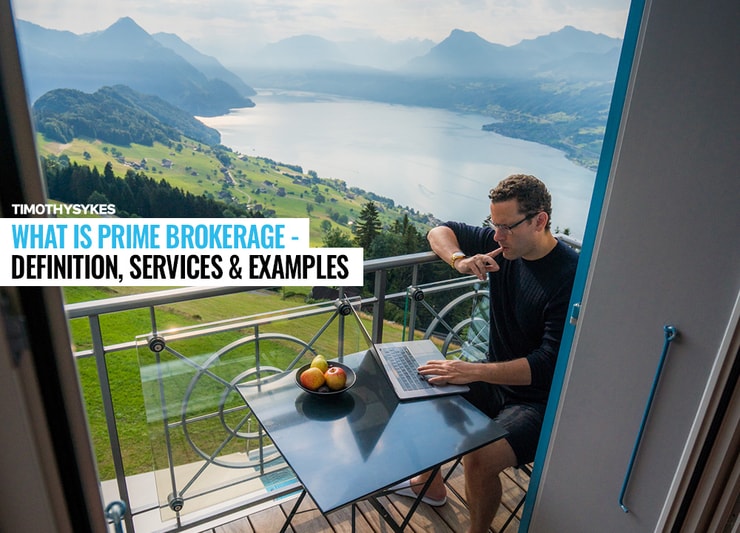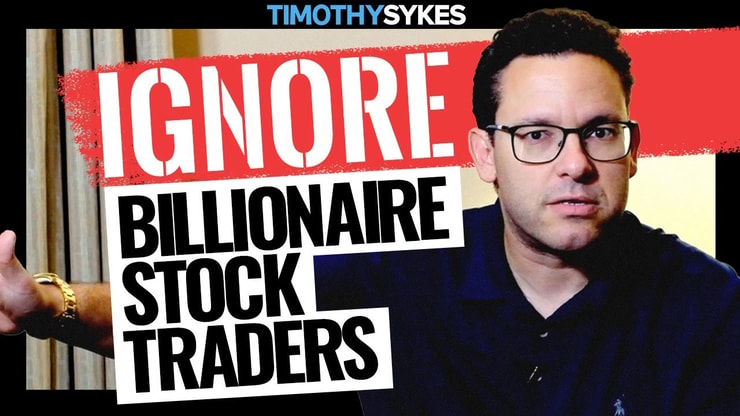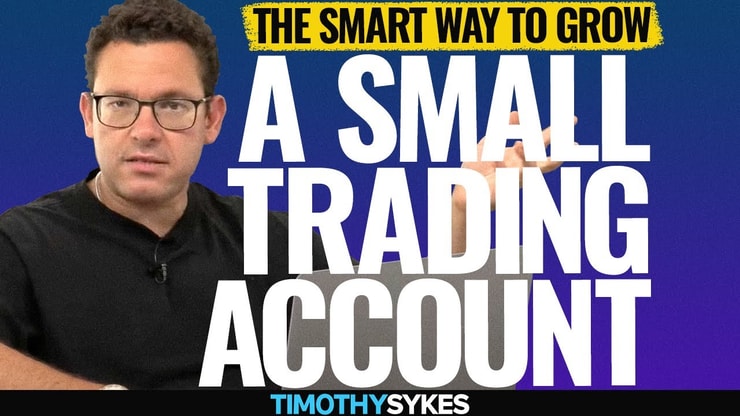*Written by AI, Edited by Humans
Prime Brokerage is a specialized service provided by investment banks to hedge funds, institutional investors, and high-net-worth individuals. It offers a one-stop-shop for various financial services, including securities lending, leverage, and cash management. This article aims to give you a comprehensive understanding of what prime brokerage is, who benefits from it, and the key services it provides.
Table of Contents
- 1 What Is Prime Brokerage?
- 2 Who Will Benefit From Prime Brokerage?
- 3 Key Prime Brokerage Services
- 4 Prime Brokerage Examples
- 5 Requirements for Prime Brokerage Accounts
- 6 Types of Prime Brokers
- 7 Benefits of Prime Brokerage Services for Institutional Investors and Hedge Fund Clients
- 8 Potential Risks Involved in Using a Prime Brokerage Service
- 9 Factors to Consider When Choosing a Prime Broker
- 10 Key Takeaways
- 11 Frequently Asked Questions
- 11.1 How Much Do Prime Brokers Charge?
- 11.2 What Is a Prime Brokerage Agreement?
- 11.3 What Is Margin in Prime Brokerage?
- 11.4 What Is Netting?
- 11.5 How Does a Prime Brokerage Generate Revenue?
- 11.6 How Are Stock Orders Executed in Prime Brokerage?
- 11.7 What Kind of Financial Content Can Help with Prime Brokerage Education?
- 11.8 What Planning Services Are Related to Prime Brokerage?
What Is Prime Brokerage?
Prime Brokerage is essentially a bundled package of services offered by investment banks to meet the complex needs of professional investors. These services range from executing trades to providing leverage and managing cash. It’s like having a Swiss Army knife for your investment needs.
What Does a Prime Brokerage Do?
A prime brokerage acts as a facilitator for hedge funds and other large investment entities. They handle a variety of tasks such as securities lending, providing leverage, and even risk management. Think of them as the backstage crew that makes the show possible.
Who Will Benefit From Prime Brokerage?
If you’re a hedge fund manager or an institutional investor, prime brokerage services are tailored for you. They offer the kind of resources and tools that can help you manage large portfolios efficiently. Even high-net-worth individuals can benefit from the specialized services they offer.
But that won’t help most traders…
Key Prime Brokerage Services
Prime Brokerage Services are the backbone of the hedge fund business and other institutional investment activities. They offer a comprehensive suite of services that go beyond mere stock transactions. We’re talking about a full-fledged financial ecosystem here. From clearing and settling trades to providing a custodian for your assets, these services are designed to streamline your operations. They offer a wealth of information and products tailored to meet the unique needs of large-scale investors.
In most cases, prime brokerages are divisions within larger investment banking firms, deeply integrated into the world of capital markets, asset management, and even venture capital. So, when you’re dealing with a prime broker, you’re not just getting a service; you’re tapping into a vast reservoir of financial expertise and resources.
Securities Lending and Borrowing
This service allows hedge funds to borrow securities for short-selling. The prime broker acts as an intermediary, lending out the securities from their own inventory or another client’s portfolio.
More Breaking News
- Roblox Stock Surges After Strong Financial Performance Reports
- QuantumScape Takes a Big Leap with New Battery Line
- SoFi Technologies Stock Surges: Q4 Wins Spark Analyst Upgrades
- HIMS Stops Compounded Pill Amid Legal Threats
Capital Introduction
Prime brokers often introduce hedge funds to potential investors. This is a valuable service for new or smaller funds that are looking to grow their capital base.
Regulatory Advice
Given the complex regulatory environment, prime brokers often provide advice on compliance issues. This is crucial for hedge funds that operate in multiple jurisdictions.
Reporting
Accurate and timely reporting is another key service. This includes performance analytics and risk assessments, which are vital for any serious investor.
Cash Management Services
From handling subscriptions and redemptions to managing treasury functions, prime brokers offer comprehensive cash management solutions.
Margin Financing and Lines of Credit
Prime brokers provide hedge funds with the leverage they need through margin financing or lines of credit. This enables them to amplify their trading strategies.
Settlement Services
After a trade is executed, the prime broker ensures that the transaction is settled efficiently. This involves transferring securities and cash between the buyer and seller.
Custody Services
Prime brokers also offer custody services, safeguarding a client’s assets. This is a crucial service given the amounts involved and the associated risks.
Specialized Services for Hedge Funds and Other Clients
Some prime brokers offer specialized services tailored for hedge funds, such as risk analytics, algorithmic trading, and even office space.
Prime Brokerage Examples
Goldman Sachs and Morgan Stanley are among the leading firms offering prime brokerage services. They offer a full suite of services, from securities lending to risk management.
Requirements for Prime Brokerage Accounts
To open a prime brokerage account, you’ll generally need a substantial amount of assets under management (AUM). The requirements can vary, but it’s not a service designed for the average retail investor.
You’re doing a good thing by fueling your knowledge account. But 99% of traders will benefit more from this:
Types of Prime Brokers
When it comes to prime brokers, one size doesn’t fit all. Different institutions offer varying levels of service, each with its own set of commissions and fees. Some focus on the stock market, while others have a broader reach into capital markets, including private equity and venture capital.
The types of prime brokers can generally be categorized into three main groups: Standard, Synthetic, and Full-Service. Each type has its own set of advantages and disadvantages, tailored to different investment strategies and portfolio management needs. Whether you’re into asset management, wealth management, or even philanthropy and charitable giving, there’s a prime broker out there that fits your specific requirements.
Standard Prime Brokers
These are the traditional prime brokers, usually large investment banks that offer a wide range of services.
Synthetic Prime Brokers
These are prime brokers who provide many of the same services but through the use of derivatives and other financial instruments.
Full-Service Prime Brokers
These prime brokers offer a comprehensive range of services, including both the standard and synthetic services, often customized to the client’s specific needs.
Benefits of Prime Brokerage Services for Institutional Investors and Hedge Fund Clients
Prime brokerage services offer hedge funds and institutional investors the ability to streamline their operations. From executing complex trades to providing in-depth research and analysis, a prime broker can be an invaluable partner.
On a related note, while prime brokerage services offer many benefits, it’s essential to know the worst-case scenarios. What happens if a stock goes negative? Being prepared for such situations can save you from significant losses. For more on this, read about what happens if a stock goes negative.
Potential Risks Involved in Using a Prime Brokerage Service
While prime brokerage services offer many benefits, they are not without risks. The use of leverage can amplify both gains and losses. It’s crucial to understand the terms of your contract and the associated fees.
On a related note, while we’re talking about risks, it’s crucial to understand the different market scenarios that can affect your investments. For instance, what does it mean when a stock is said to “outperform”? Knowing this can help you gauge the risk-to-reward ratio better. For a detailed explanation, check out this guide on what ‘outperform’ means in stocks.
Factors to Consider When Choosing a Prime Broker
When choosing a prime broker, consider their reputation, the range of services offered, and the fees involved. It’s also important to look at the quality of their customer service and their technological capabilities.
If you’re seeking alternatives, it’s worth exploring how unusual options activity can be a game-changer in your trading strategy. This can provide you with insights that are not apparent in the stock’s current price. To dive deeper into this, here’s a guide on unusual options activity.
Key Takeaways
Prime Brokerage is not for everyone. It’s a specialized service designed for hedge funds and institutional investors. However, for those who can access these services, they offer a powerful set of tools for managing complex investment strategies.
Knowing about them won’t help the average trader — but prime brokerages are one of the many topics you should learn about as part of your trading education!
Trading isn’t rocket science. It’s a skill you build and work on like any other. Trading has changed my life, and I think this way of life should be open to more people…
I’ve built my Trading Challenge to pass on the things I had to learn for myself. It’s the kind of community that I wish I had when I was starting out.
We don’t accept everyone. If you’re up for the challenge — I want to hear from you.
Apply to the Trading Challenge here.
Trading is a battlefield. The more knowledge you have, the better prepared you’ll be.
Do you understand what us regular traders are up against? Let me know in the comments — I love hearing from my readers!
Frequently Asked Questions
How Much Do Prime Brokers Charge?
Fees can vary widely depending on the range of services provided. Always make sure to read the fine print.
What Is a Prime Brokerage Agreement?
This is the contract that outlines the terms and conditions of the relationship between the hedge fund and the prime broker.
What Is Margin in Prime Brokerage?
Margin in prime brokerage refers to the amount of money borrowed to make investments, and it’s a key component of many trading strategies.
What Is Netting?
Netting involves offsetting positions to reduce the amount of cash needed for settling trades, a key service in prime brokerage.
How Does a Prime Brokerage Generate Revenue?
Prime brokers make money through fees, interest on margin loans, and sometimes by using the assets they hold to engage in their own trading and investment activities.
How Are Stock Orders Executed in Prime Brokerage?
In prime brokerage, the focus is on executing stock orders for institutional clients, such as hedge funds. The broker takes orders for buying and selling stocks with the goal of optimizing returns for their clients. This is a fundamental aspect of investment management.
What Kind of Financial Content Can Help with Prime Brokerage Education?
Content that discusses various aspects of finance, especially investment management and how stock orders are executed, can be crucial. Articles can provide a deep dive into the mechanisms of returns, order execution, and the overall role of a prime broker.
What Planning Services Are Related to Prime Brokerage?
Prime brokerage services often intertwine with various aspects of financial planning. Although the primary focus is on institutional clients, the scope can extend to services like tax planning, estate planning, and even trust planning, especially when managing large portfolios.





Leave a reply